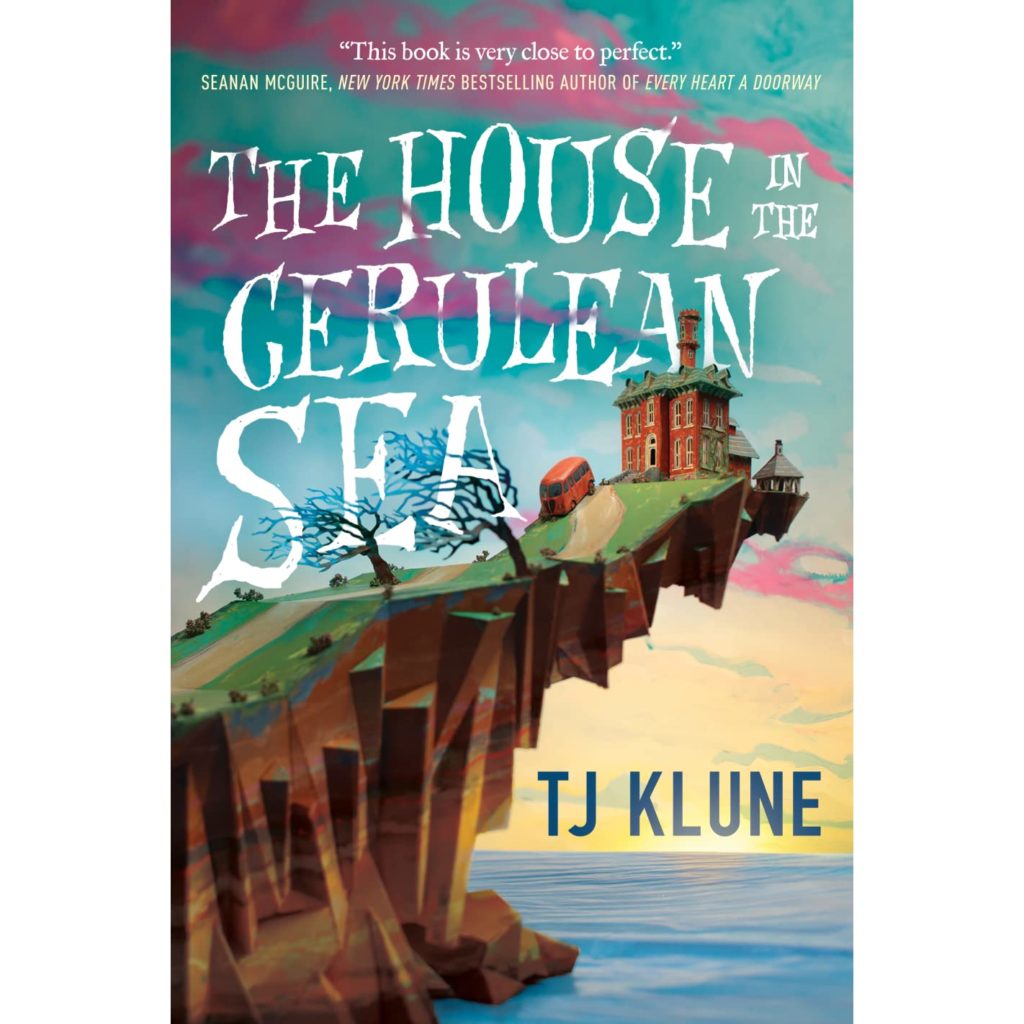A five-star recommendation to lift your spirits and make you think: ‘The House in the Cerulean Sea’
Photo courtesy of Pexels.com.
Tori Miller | Staff Writer
Warning: minor spoilers ahead.
Looking for a lighthearted and inspirational book with a plethora of well-written characters that tackles persistent modern-day topics? Look no further than “The House in the Cerulean Sea” by TJ Klune. This delightfully whimsical story mixes in the harsh realities of prejudice, intolerance and refusal to change all with an element of magic at the forefront.
A regular human being, Linus Baker, lives in a world full of magical creatures that he encounters on a daily basis. Working as a caseworker for the Department in Charge of Magical Youth, Linus has lived a strict no nonsense life with little sense of adventure and a heavy dose of understanding rules. Although he spends most of his days filling out paperwork, visiting orphanages with magical children and writing files, Linus’ life completely changes when he is tasked with writing about the isolated house on Marsyas island—a place notorious for hosting the most dangerous of magical children.
Throughout his journey, Linus feels the pressure to maintain objective on his assignment from Extremely Upper Management. He is tasked with deciding whether the home is suitable for the children living there and if the children inside would be a great threat to society, although Linus didn’t anticipate meeting magical beings that will alter his life forever.
With a seemingly straightforward plot, the characters are what drive the narrative. Arthur, head of the Marsyas orphanage, is a wonderful reflection of the idea “a great teacher can change everything.” In charge of teaching, feeding and encouraging the children, Arthur truly shines as a fatherly figure throughout the course of this book. He embodies the use of positive reinforcement, how to respect yourself and others and to prove to readers that change is possible through education. Arthur does the seemingly impossible which involves encouraging children who have been told they are nothing but monsters their entire lives and showing the neighboring village that open-mindedness will help the world progress.

Along with Linus and Arthur, the magical children of Marsyas Island are the ones who steal the show. While possessing powerful magical abilities, the children still uphold some notion of childhood blissfulness and curiosity. Each child refuses to be defined by their appearance and the preconceived notions that society has come to categorize them as: such as Chauncey the under-your-bed blob monster that wants nothing more than to be a friendly hotel bellhop.
The children are also interested in their own hobbies and with Arthur’s tutelage, they are encouraged to pursue what they love without feeling the need to fall victim to society’s judgements. With charming wit and chapters filled with adorable moments, the children are a fantastic representation of a “found family” that works together to redefine the fate of the world in a positive way.
Klune does a beautiful job of transporting readers to another reality that may seem different on paper, but within the writing it is evident that the truths of his world are not too different from our own. One of the most interesting aspects of this story is the idea of agency with livelihoods: this is directly shown through Linus’ life. At 40 years old, he is continuously criticized for not reaching the pressurized standards society pushes upon all adults. Linus remained single. He worked a job where he was never promoted. He lives in a small house and he cannot speak without facing verbal backlash from his superiors. Essentially trapped in a life not worth living to himself, Linus eventually learns that in order to escape the rut of human existence, choice is required for your own happiness. Throughout the story, Linus begins to see what life he could be living and that he will have to make a change in order to have what he has been searching for, even if it goes against the rigidness of society.
“Hate is loud, but I think you'll learn it's because it's only a few people shouting, desperate to be heard. You might not ever be able to change their minds, but so long as you remember you're not alone, you will overcome.” ― T.J. Klune, "The House in the Cerulean Sea"
Another truth articulated among Klune’s writing is the difficulties of handling social issues. Within the context of these magical orphanages, Klune is representing the fragile and concerning foster system of our own society. Most of the time, these places are unsuitable for children to prosper and to flourish into the best they could be.
This raises questions of deeper reflection, such as: will these children become products of their environment? Will they be able to acclimate to a society that looks down upon them for something they had no control over? How would someone start to change something like this? Klune shows how these children are exposed to bigotry and the preconceived notions of people who were raised in what society deems a heteronormative “normal home” (one that includes a married mother and father with children).
“The House in the Cerulean Sea” inspires hope and change into an unforgiving society more focused on hate than love. While people crave elements of fantastical proportions in stories, by including things such as fairies, dragons and female gnomes, this story is a teaching tool that parallels our own world.
This is a book you will never forget, not only because of the precious moments within the pages of the book but also because of the larger cultural context that this book seeks to impact through future generations.
For more arts & entertainment news, like Flyer News on Facebook and follow us on Twitter (@FlyerNews) and Instagram (@flyernews).

